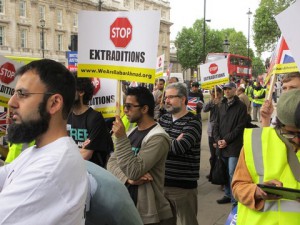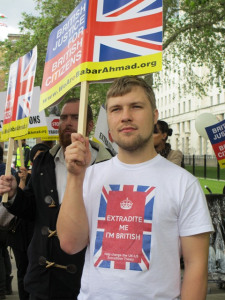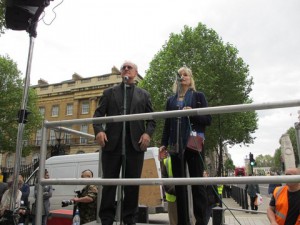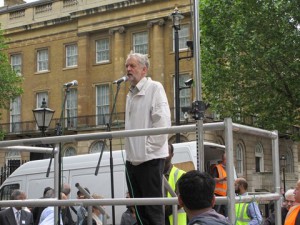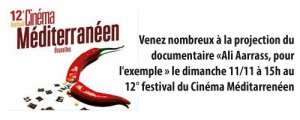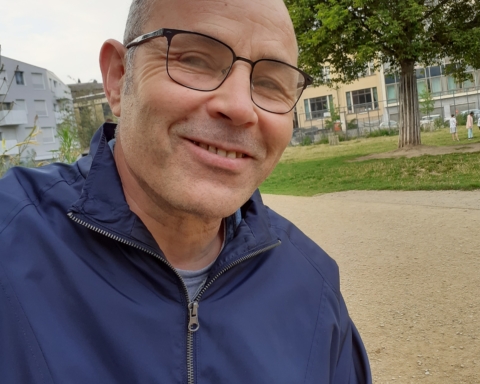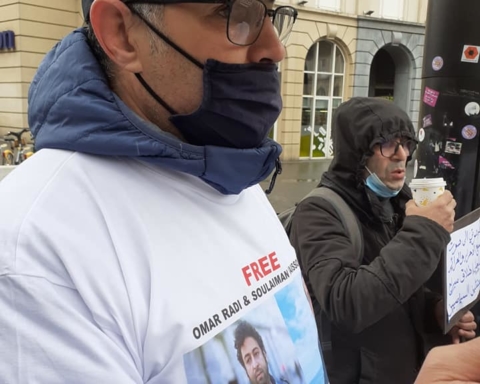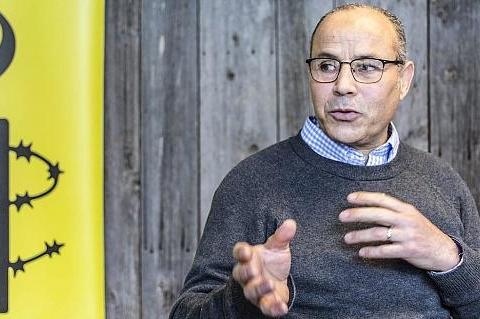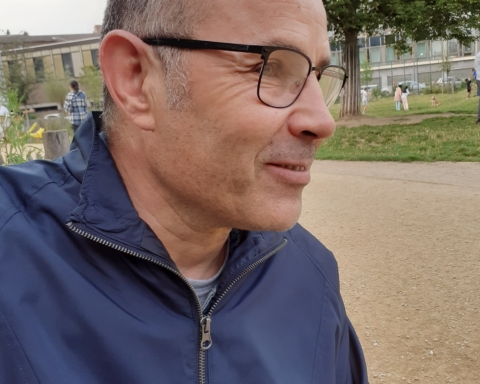November 7, 2012 · by Aisha Maniar
http://onesmallwindow.wordpress.com/2012/11/07/outsourcing-justice-a-tale-of-two-extraditions/
One Week in October
In the first week of October, two court cases took place in two different countries in different continents involving different people. Both cases, involving extradition from European countries, nonetheless display some striking similarities in the surrounding circumstances and hint at a worrying new European practice.
On 1st October, the Rabat Court of Appeal in Morocco reduced the conviction of Belgian-Moroccan national Ali Aarrass to 12 years from an initial 15 years on terrorism-related charges, which he claims he confessed to under torture. On 5th October, at the High Court in London, Babar Ahmad and Talha Ahsan, the Tooting Two, both British citizens, lost their combined decade-long fight against extradition to the United States on charges of alleged support for terrorism. They claim that pre-trial and possible post-trial imprisonment in the US would be tantamount to cruel and degrading treatment.
Say who?
Ali Aarrass, a 50-year old bookseller from Brussels, was born in the Spanish enclave of Melilla in North Africa in 1962. He moved to Belgium in 1977, aged 15, and obtained Belgian nationality in 1989. He was not involved in any political or religious organisations. In 2005, he returned to Melilla with his family where he ran a café. Suspected of involvement in bombings in Casablanca in 2003, he was arrested for the first time in Melilla in 2006. Released on bail after four days, he was arrested again in April 2008, when the Moroccan authorities requested his extradition on charges of terrorism involvement. He was held in custody in various Spanish jails until he was extradited on 14 December 2010. Following a thorough two-year investigation, in March 2009, Judge Baltazar Garzon, formerly one of Europe’s strictest anti-terrorism judges, found that there were insufficient grounds to implicate him in the attacks. Spain nonetheless acquiesced to the extradition request. Upon arrival, he promptly “disappeared” for 12 days during which he “confessed”; he maintains that he was tortured. This resulted in his conviction in November 2011 on charges of bringing weapons into Morocco and supporting a terrorist network, allegedly run by another Belgian-Moroccan, Abdelkader Belliraj, who was given a life sentence in 2009.
Meanwhile, in London, the ordeal of 38-year old Babar Ahmad, who worked in the IT department at Imperial College, University of London, started even earlier in 2003, in perhaps one of the most extraordinary cases of a miscarriage of justice in recent times. Babar Ahmad was arrested for the first time by anti-terrorism police at his Tooting home in December 2003; during that arrest, he sustained over 73 injuries. In 2009, Babar Ahmad was awarded £60,000 for the attack following admission of it by the police. No apology has been offered. In June 2011, four officers were found not guilty of assault. He was released 6 days later without charge.
In August 2004, he was arrested again pending extradition to the USA. The charges revolve largely around Babar Ahmad’s operation of websites alleged to support terrorist organisations, one of which was briefly hosted in the US, and soliciting funds for terrorist organisations. Although the alleged crimes are reported to have taken place in the United Kingdom, in July 2004, the Crown Prosecution Service (CPS) did not prosecute “on the basis that there was insufficient evidence in the UK for a successful prosecution”. He was indicted in the US. In May 2005, the senior district judge responsible for extraditions approved the extradition and in November that year, his extradition was ordered by the then Home Secretary Charles Clarke.
His co-accused, the lesser-known Talha Ahsan, was arrested in September 2006 on the same charges. A 33-year old graduate from the School of Oriental and African Studies, University of London, Talha Ahsan is an award-winning poet and suffers from Asperger’s Syndrome, making him more vulnerable. His extradition was approved by the court in March 2007 and ordered by the Home Secretary in June that year.
Having exhausted all avenues of appeal in the UK, the men took their case to the European Court of Human Rights (ECtHR) in Strasbourg. The Court stayed the extraditions and in a partial ruling in 2010 ordered the extraditions be stayed once more until it was ascertained that the men would not be subject to inhumane treatment, particularly with respect to the harsh conditions of detention there. In an extraordinary ruling in April 2012, the Court held that extradition to the US would not breach their human rights.
Their cases have attracted considerable attention. In 2011, over 140,000 people signed an e-petition to Prime Minister David Cameron seeking that the two men be tried in the UK. Under current government rules, an e-petition to the prime minister with over 100,000 signatures should lead to a specific debate in parliament on an issue. In the end, the issue was discussed as part of a wider debate disappointing campaigners. The two men have not tried to avoid prosecution: they have always insisted that if there are charges to answer and sufficient evidence to try them, that they be tried in the UK where the offences allegedly took place. To this end, in 2012, businessman Karl Watkins tried to bring a private prosecution against them under the Terrorism Act 2000. This case was dismissed on 4 October, a day before their extradition, for failing “to show a genuine intention to prosecute”. On 6 October both men pleaded not guilty to all charges before a Connecticut court. Since the extradition, there has been no telephone or written communication between the men and their families at all.
Observers at both trials reported the farcical nature of the trials in which the verdicts appeared to be long foregone. In the latter UK trial, it emerged that a US Department of Justice-owned jet plane had arrived from Washington on Tuesday at an air force base to collect the men, the same day the 4-day hearing started. The Independent newspaper also revealed that the Metropolitan Police, all the while claiming there was insufficient evidence to prosecute in the UK, handed evidence over to the FBI on at least nine occasions. This evidence was never seen by the CPS. Instead, European citizens were sent to other countries where the risk of torture and abuse of their right to a fair trial cannot be ruled out.
Torture and Extradition
In Ali Aarrass’ case, torture has been a feature throughout. The lack of evidence leading to the Spanish case against him being dismissed in 2009 was due to his name having been mentioned by a Moroccan prisoner who was tortured; the confession was later retracted. The two had never met and did not know each other. In this terrorist network investigation, more than 1500 people were arrested on suspicion of involvement, many of whom were tortured at Temara Prison, like Ali. In view of Human Rights Watch’s (HRW) October 2010 report on this very subject, concerns expressed by Amnesty International and then the United Nations Human Rights Committee’s (HRC) order to stay the extradition while his case was considered, there is no way that Spain could have been unaware of the risk he faced when it accepted Morocco’s assurances. Furthermore, it could not be unaware of the routine use of torture in Moroccan jails. As well as the horrific torture case involving former Guantánamo Bay prisoner Binyam Mohamed, other extraordinary torture rendition cases related to Morocco had emerged by then. Even Hollywood knew it: Morocco was strongly tipped to be the unnamed country in the 2007 film Rendition. Belgian lawyers for Ali Aarrass are now bringing a case against Spain before the HRC.
The extradition itself was secretive, with his family and lawyers only learning of his removal to Morocco through the press. Upon arrival in Morocco, Ali “disappeared” for 12 days, during which he was held by the police. He emerged bruised and battered, claiming that he had been beaten, subjected to sleep deprivation, injected with chemicals, raped, given electric shocks to his genitals, claims consistent with those made by many other prisoners in Moroccan jails. His Belgian lawyers have also brought a complaint against Morocco for an independent investigation into his torture claims. The Moroccan police, on the other hand, emerged with a signed confession to the charges in Arabic, a language he does not speak or read, evidenced by the need for an interpreter at his hearings. At his first trial, he retracted the confession, saying he had been forced to sign it. He is still subject to abuse in prison.
US prison conditions do not fare much better. In their case before the ECtHR, the Tooting Two argued that their extradition would be incompatible with their human rights under the European Convention on Human Rights, particularly Article 3 (prohibition on torture), as they would most likely be held at the Federal ADX Florence “Supermax” Prison if convicted; both face the possibility of a life sentence there. Described by a former prison officer as a “clean version of hell”, 360 prisoners are held at the administrative maximum facility (ADX), including some of the US’ most notorious convicts, in high-security conditions, tantamount to almost perpetual solitary confinement, sensory deprivation and “extreme isolation”, aimed at breaking prisoners down. This is par for the course in a country that deems torture to be an “enhanced interrogation technique” and in which the solitary confinement of prisoners is routine. One year ago, prisoners at the Pelican Bay Supermax Prison in California, home largely to violent gang members, started a hunger strike over conditions. Some prisoners have been in solitary confinement for over 20 years (the average is 8 at this jail), during which they have no contact with other human beings, including prison staff. This has been described by lawyers and prisoners as a cruel and unusual punishment. The mental health effects on prisoners, including depression, hallucinations, post-traumatic stress disorder and sometimes suicide are currently the subject of litigation with respect to Pelican Bay and ADX Florence. The surprise was the ECtHR ruling in April that such prison conditions would not be in breach of the two men’s human rights. For many campaigners, particularly in the US, it was felt that this politicised decision by the ECtHR gave torture, or at least cruel and degrading treatment, the green light, and international sanction of a harsh and inhumane regime. In spite of the ECtHR’s satisfaction with conditions in the US, following the extraditions, Amnesty International expressed its concerns and dismay at the ruling.
The UN Special Rapporteur on Torture Juan Mendez has intervened in both cases. In early October, his office wrote to the British government informing it that the extraditions would be in breach of the UN Convention Against Torture. Mr Mendez said, “I think there is very good arguments that solitary confinement and SAMs (special administrative measures, which impose severe restrictions on communication with other inmates or the outside world) would constitute torture and prevent the UK from extraditing these men.” He described such conditions as “arbitrary” and not “disciplinary”.
Juan Mendez visited Ali Aarrass in prison in Morocco just days before his appeal hearing started in September. He then issued a statement expressing his grave concerns about the use of torture in Moroccan jails, which he described as “systematic”. As a result, Mr Aarrass was threatened by prison staff. A report by Morocco’s official human rights body, the CNDH, last month revealed that most prisoners are subject to “cruel, inhuman and degrading treatment” without any effective investigations or inspections. At his hearing on 1st October, Ali Aarrass was supposed to be given an opportunity to talk about the torture he had faced. Following the reduction and not overturn of his sentence, Mr Aarrass’ lawyers are now appealing to the supreme administrative court (Court of Cassation) on a number of points of law.
“Bargaining Chips”
In a forthcoming documentary about her brother, Ali Aarrass, Pour l’Exemple (English working title: Ali Aarrass: The Buck Stops Here), Farida Aarrass describes him as a “bargaining chip” in relations between the three states involved in his ordeal: Morocco, Spain and Belgium. The war on terror has indeed provided fertile ground for the burgeoning trade in human beings in diplomatic and commercial relations. A clear example of this was unearthed by HRW in Libya last year and is being investigated by the Metropolitan Police, concerning Britain’s direct involvement in the extraordinary rendition of Libyan dissidents in 2004. Shortly thereafter, trade relations were resumed with the Gaddafi regime, and attempts were made to deport other dissidents from the UK.
Cables leaked by Wikileaks demonstrate the clear awareness of various states of the torture evidence used in the Belliraj (terrorism ring) trials held in 2009, as well as concerns on how to deal with the abuses of rights and due process cited by lawyers and human rights NGOs. Less than a fortnight after ordering the extradition of the Tooting Two, Home Secretary Theresa May decided not to extradite Gary McKinnon, ending his almost decade-long fight, citing his Asperger’s Syndrome, also suffered by Talha Ahsan, as compromising his human rights and putting him at additional risk; this was ascertained not independently but by her own doctors. Home secretaries are not known for their compassion, as anti-deportation campaigners know too well. Clearly, a deal had been struck in Mr McKinnon’s case – who has suffered considerably – which was not reached in the case of the Tooting Two. The Home Secretary also announced changes, but the not much sought-after repeal, of the Extradition Act 2003. Much has been written about the unfairness in the two decisions in cases with striking similarities. Accused of racism and islamophobia, the test will come later this year when Richard O’Dwyer, not an Asperger’s sufferer, but also facing charges of online US offences committed in the UK, has his extradition hearing.
The United States and its intelligence agencies prefer to rely on their extrajudicial armoury, such as “extraordinary rendition” and fuzzy definitions of terms, such as “enhanced interrogation techniques” for “torture”. European states, on the other hand, continue to deny their involvement in such practices or that they collude in torture in any way. In the same way that the US outsources torture through such practices, European states are choosing to outsource justice in cases that would be problematic vis-à-vis the European Convention on Human Rights, particularly Article 3 (prohibition on torture), Article 5 (right to liberty and security) and Article 6 (right to a fair trial). An extradition involves a lawful “rendition” where a person is lawfully handed over from one state to another. European states are using legal mechanisms, such as extradition, to outsource justice, to states whose lower standards of proof and fair trials allow them to be tried in cases that could never be brought in Europe. This is clear in Ali Aarrass’ case having been thrown out by one of the strictest anti-terrorism judges in Europe. Other mechanisms exist too, such as the arbitrary deprivation of nationality and constraints on dual citizens, including Belgium’s own previous “double peine” regime, stripping dual nationals of their Belgian citizenship if convicted. The dehumanising and isolating effect of the war on terror, accusations of involvement in terrorist activity and the cult of secrecy shrouding “national security” concerns provide a comfortable blanket for governments worldwide. In the case of individuals like Ali Aarrass and the Tooting Two, it is truly the hard work of their families, lawyers and activists, who have refused to let matters go quietly or at all, that have thwarted official attempts to obscure such procedures, that are sometimes illegal, and have dragged the process on for years and beyond where the state parties involved may have liked.
There is something more sinister at play, however, perhaps best evidenced by the fact that a British company, Hiatts, once famous for manufacturing the shackles used to transport slaves across the Atlantic later produced shackles to transport prisoners to Guantánamo Bay. At the macro level, as governments around the world act like organised gangs, wilfully outside of the known confines of the law, enabling show trials and violating the absolute prohibition on the use of torture, and as extraordinary rendition and the war on terror have escalated over the past decade, so have other trades in human beings. At the micro level, this has opened the floodgates to the proliferation of people trafficking most often for domestic slavery and sexual exploitation, and debt bondage: slavery is well and truly alive in the twenty first century. Just a few weeks ago, the BBC reported that slavery, in its various forms is at its highest level ever. Criminal gangs trade in vulnerable people across borders and continents through extraordinary underhand deals in very much the same ways as governments, concealed by a code of silence.
Ali Aarrass, Pour L’Exemple will premiere on Sunday 11 November as part of the 12th Mediterranean Film Festival in Brussels. This is Armistice or Remembrance Day. Much has changed in the century since the “great war”: empires have risen and fallen, languages and technologies have evolved but history has a habit of repeating itself, and some stories remain the same.
Campaign actions:
Belgium:
http://www.freeali.be/2012/10/24/12-festival-cinema-meditarreneen-9-17-novembre-bruxelles-ali-aarrass-pour-lexemple/
Premiere of Ali Aarrass, Pour L’Exemple: 12th Mediterranean Film Festival, Sunday 11th November 2012, Rotonde, Brussels, 3pm
United Kingdom:
http://freetalha.org/2012/11/event-surviving-extradition/
Surviving Extradition: With Gary Mulgrew, Hamja Ahsan and Aviva Stahl, Friday 23rd November, 6.45-8.30pm, Abrar House, 45 Crawford Place, London W1H 4LP
http://freebabarahmad.com/the-story/latest-news/item/577-action-alert-write-to-the-foreign-secretary-british-ambassador-and-your-mp-regarding-continuing-isolation-of-babar-ahmad-and-talha-ahsan
Action alert: write to the Foreign Secretary, British Ambassador and your MP

